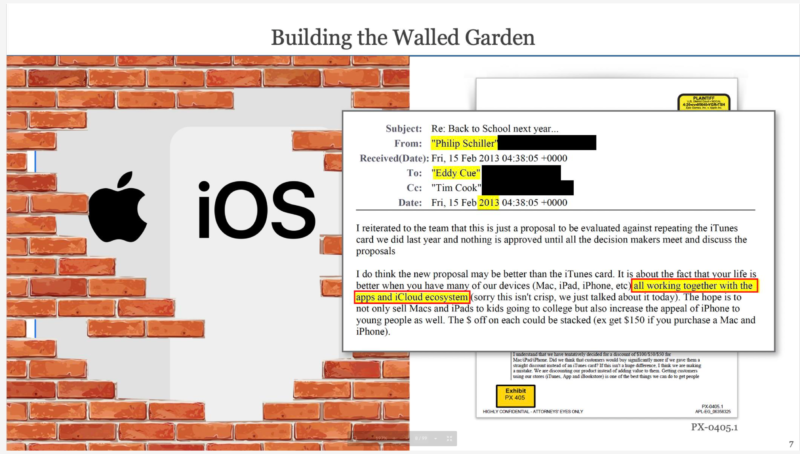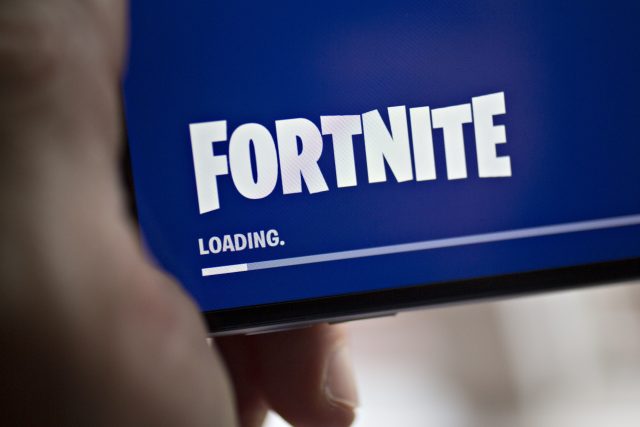
It has been over a year now since a US District Court ruled that Apple did not violate antitrust law by forcing iOS developers (like plaintiff and Fortnite-maker Epic Games) to use its App Store and in-app payments systems. But that doesn't mean the case is settled, as both sides demonstrated Monday during oral arguments in front of the 9th Circuit Court of Appeals.
The hearing was full of arcane discussion of legal standards and procedures for reviewing the case and its precedents, as well as input from state and federal governments on how the relevant laws should be interpreted. In the end, though, the core arguments before the appeals court once again centered on issues of walled gardens, user lock-in, and security versus openness in platform design.
Security is the “Apple difference”
In defending Apple's position, counsel Mark Perry argued that the company's restraints on iOS app distribution were put in place from the beginning to protect iPhone users. Based on its experience managing software security and privacy on Macs, Apple decided it "did not want the phone to be like a computer. Computers are buggy, they crash, they have problems. They wanted the phone to be better."
If the Mac App Store was the equivalent of a lap belt, the iOS App Store, with its costly human review system, is "a six-point racing harness," Perry said. "It's safer. They're both safe, but it's safer."
While Epic argued that the iPhone's walled garden "only keeps out competition," Perry shot back that "what's kept out by walled gardens is fraudsters and pornsters and hackers and malware and spyware and foreign governments..."
Providing superior user safety, Perry said, is a key "non-price feature" that helps set the iPhone apart from its Android-based competition. Users who want the more open system that Epic is fighting for can already buy an Android phone and choose from a variety of App Stores, Perry said. By doing so, though, those users "open themselves up to more intrusion" compared to an iPhone, he argued.
Those kinds of "pro-competitive" security features Apple offers with its App Store restrictions legally outweigh the "minor anti-competitive effects" iOS app developers face on the platform, Perry said.
A convenient excuse?
From Epic's perspective, though, the security justification for Apple's App Store policies is nothing more than an "excuse to remove all competition" in the market for iOS app transactions. It's an excuse that conveniently lets Apple rake in tens of billions of dollars in "supercompetitive profits" from a billion iPhone users, Epic counsel Tom Goldstein argued.
Goldstein allowed that Apple should be permitted to offer its "walled garden" App Store and could even urge users to take advantage of its vaunted security and privacy protections. What Apple shouldn't be allowed to do, Goldstein argued, is use "contract and technology" to "not even allow a competitive alternative" to that App Store on iPhones.

By way of example, Goldstein brought up a potential Disney App Store on iOS that could provide even greater protections for families when it comes to potentially objectionable content. Competing iOS App Stores could also provide cheaper prices, Goldstein said, by competing on Apple's 30 percent fees.
Blocking those kinds of alternative methods for app downloads creates a kind of circular definition of "product differentiation" for the iPhone, Goldstein said. He sardonically summed up Apple's argument: "I have a better product. You know what makes my product better? That I have no competition! ... You can't block horizontal competition [among iOS App Stores] and then use as your excuse that I am now going to offer a product that is differentiated by the fact that it has no competition!"
reader comments
210